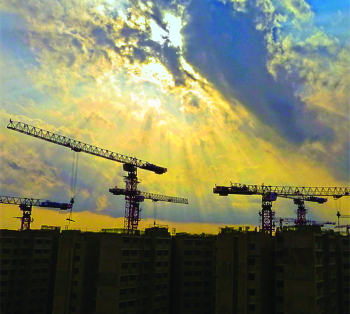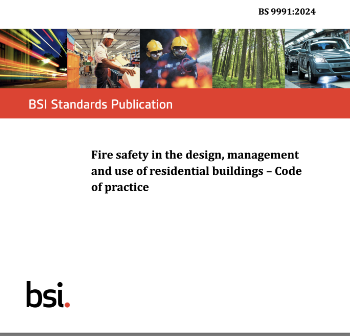Sound insulation in dwellings: Part 1: An introduction (GG 83-1)
BRE (Building Research Establishment) is an independent, research-based consultancy, testing and training organisation, operating in the built environment and associated industries.
Sound insulation in dwellings: Part 1: An introduction (GG 83-1) was written by Gary Timmins and Ian West and published by BRE on 24 February 2014.
GG 83-1 is part of a three-part Good Building Guide providing practical guidance for designers, construction managers, construction operatives and property developers to help them understand the requirements of the building regulations concerning the provision of sound insulation in dwellings.
Unwelcome noise in homes, is a major problem in the UK that requires serious consideration from both architects and builders. Noise nuisance can be a cause of stress and, if not remedied, can affect our health and wellbeing as well as influencing our enjoyment of buildings. People have different attitudes to noise; building occupants may be unaware that the noise they are making can be heard by their neighbours and regarded as a nuisance.
Considering the requirements relating to sound insulation at an early stage of any development reduces the likelihood of costly remediation and delays at completion.
Part 1 explains the importance of providing good sound insulation between and within homes, describing:
- The problems associated with neighbour noise.
- How to satisfy the current regulatory requirements in England and Wales.
- Methods of measuring sound transmission in dwellings.
Part 2 explains how to provide a reasonable level of sound insulation between new dwellings, and part 3 gives advice on providing the correct level of sound insulation for converted dwellings.
The contents of part 1 are:
- The noise problem.
- Basic principles.
- Satisfying building regulations.
- Sound insulation testing.
- Enhanced standards of sound insulation between homes.
- References.
[edit] Find out more.
[edit] Related articles on Designing Buildings Wiki
- Approved Document E.
- BRE articles on Designing Buildings Wiki.
- BRE Buzz articles on Designing Buildings Wiki.
- BRE Buzz.
- BREEAM Acoustic performance
- BREEAM Reduction of noise pollution
- Building acoustics.
- Building Research Establishment.
- Noise nuisance.
- Part E compliance.
- Pre-completion sound testing.
- Robust details certification scheme.
- Room acoustics.
- Sound insulation in dwellings Part 2: New-build (GG 83-2).
- Sound insulation in dwellings: Part 3: Material change of use (conversions) (GG 83-3).
- Sound insulation.
- Sound v noise.
- Structure-borne sound.
Featured articles and news
CLC and BSR process map for HRB approvals
One of the initial outputs of their weekly BSR meetings.
Building Safety Levy technical consultation response
Details of the planned levy now due in 2026.
Great British Energy install solar on school and NHS sites
200 schools and 200 NHS sites to get solar systems, as first project of the newly formed government initiative.
600 million for 60,000 more skilled construction workers
Announced by Treasury ahead of the Spring Statement.
The restoration of the novelist’s birthplace in Eastwood.
Life Critical Fire Safety External Wall System LCFS EWS
Breaking down what is meant by this now often used term.
PAC report on the Remediation of Dangerous Cladding
Recommendations on workforce, transparency, support, insurance, funding, fraud and mismanagement.
New towns, expanded settlements and housing delivery
Modular inquiry asks if new towns and expanded settlements are an effective means of delivering housing.
Building Engineering Business Survey Q1 2025
Survey shows growth remains flat as skill shortages and volatile pricing persist.
Construction contract awards remain buoyant
Infrastructure up but residential struggles.
Home builders call for suspension of Building Safety Levy
HBF with over 100 home builders write to the Chancellor.
CIOB Apprentice of the Year 2024/2025
CIOB names James Monk a quantity surveyor from Cambridge as the winner.
Warm Homes Plan and existing energy bill support policies
Breaking down what existing policies are and what they do.
Treasury responds to sector submission on Warm Homes
Trade associations call on Government to make good on manifesto pledge for the upgrading of 5 million homes.
A tour through Robotic Installation Systems for Elevators, Innovation Labs, MetaCore and PORT tech.
A dynamic brand built for impact stitched into BSRIA’s building fabric.
BS 9991:2024 and the recently published CLC advisory note
Fire safety in the design, management and use of residential buildings. Code of practice.

























